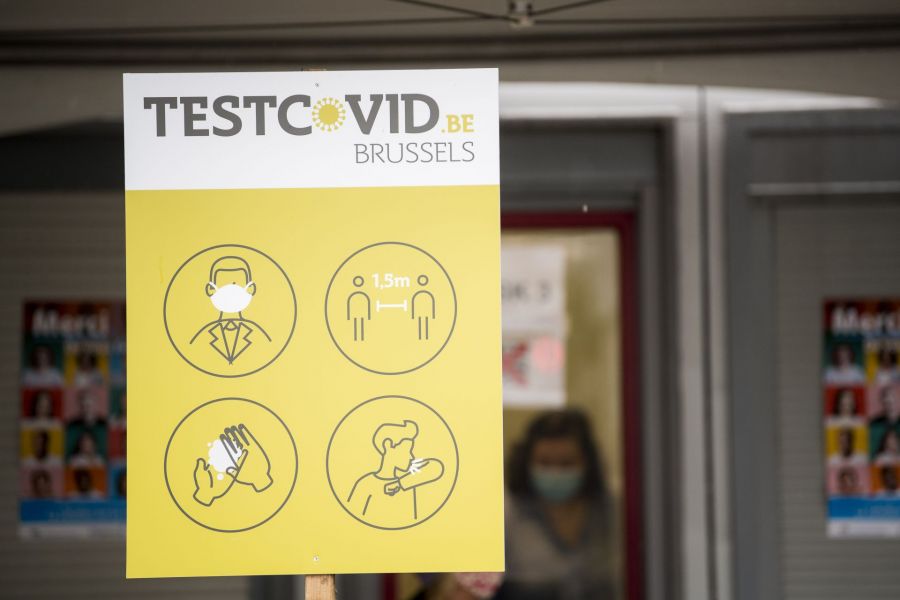General practitioners in Brussels are calling on the government to introduce "a different strategy" of testing, as doctors can no longer keep up with the increasing number of people who need a Covid-19 test.
"The situation is very worrying," Elisabeth Wallays, coronavirus coordinator of the Brussels circle of GPs said on Flemish radio, adding that the demand has grown exponentially in recent weeks. "We cannot take it any more, at least not the way we are working now."
"We need a different strategy," she said, adding that it is no longer necessary to test everyone with mild symptoms. "It does not change much, because that person has to be quarantined for seven days anyway."
Informing people remains key, according to Wallays. "Society is not homogeneous. People have different ages, socio-economic backgrounds, cultures," she said. "You cannot reach everyone with a federal information campaign. That has to be tackled locally."
Even though Wallays works in a large centre with a rotation system to test as many people as possible, the staff cannot keep up with the rising number of people who need to be tested in Brussels, which remains the focal point of infections in Belgium.
Related News
- Covid-19: overloaded Brussels contact tracers switch to texting
- Belgium warned not to be 'excessive' with new measures
- Brussels' better Covid figures 'likely' due to lack of tests
Wallays' practice is located in the densely populated municipality of Molenbeek. "As soon as one person tests positive, all of a sudden a whole lot of people have to be tested," she said. "The testing capacity will never be big enough for the number of tests we need."
On Wednesday, virologist and interfederal Covid-19 spokesperson Steven Van Gucht said that the Capital Region was seeing a slower rise of infection figures than the rest of the country.
However, this slower rise is probably not yet the result of Brussels' more stringent measures, but more likely due to the lack of testing capacity in the Region, according to him.
General practitioners can do more useful work in other ways, according to Wallays, such as focusing more on informing people, and dedicate more time to the triage for severe cases that need to be followed up on and sometimes even go to hospital.
Additionally, the hospitals in the Brussels-Capital Region were told to be ready to operate in 'phase 1B' from Friday, meaning they have to reserve 50% of their intensive care beds for coronavirus patients.
Previously, Brussels Covid-19 patients were sometimes transferred to hospitals outside the Region, but now "the pressure on the beds is increasing overall and the possibility of transfer is decreasing."
The capacity is lagging behind because contact tracing did not happen the way it should have this summer, when the test positivity rate was much lower, according to Wallays. Recently, Brussels contact tracers even switched from calling people to texting them, as they could no longer keep up with the rising infections.
"There should have been mass deployment on cluster investigations, tailor-made information campaigns, local lockdowns. This could have been done at the time," she said. "Now it has got out of hand to such an extent that it no longer serves any purpose."
Maïthé Chini
The Brussels Times

